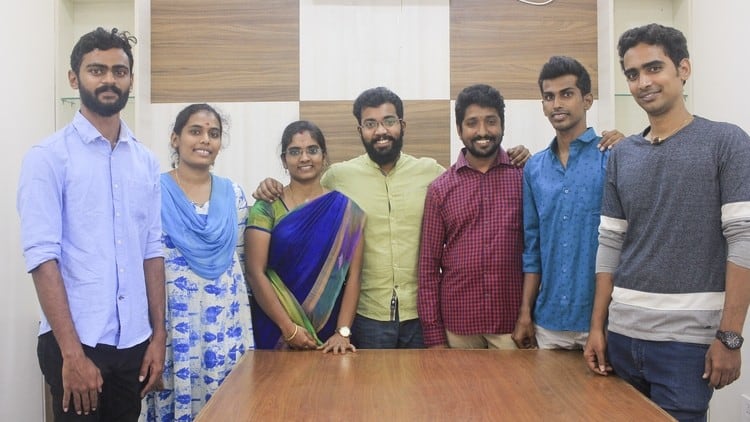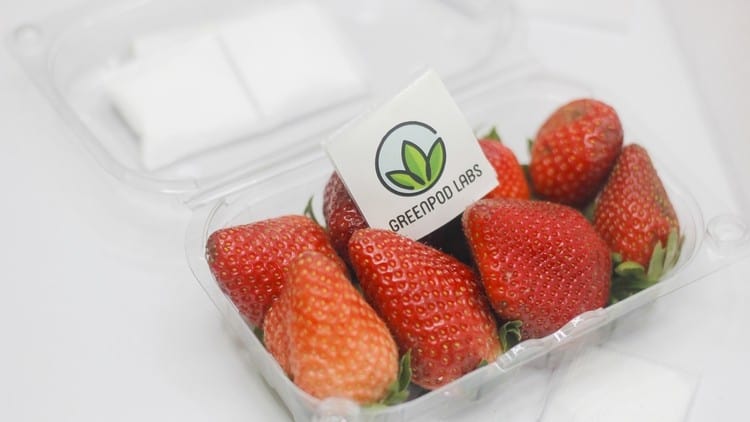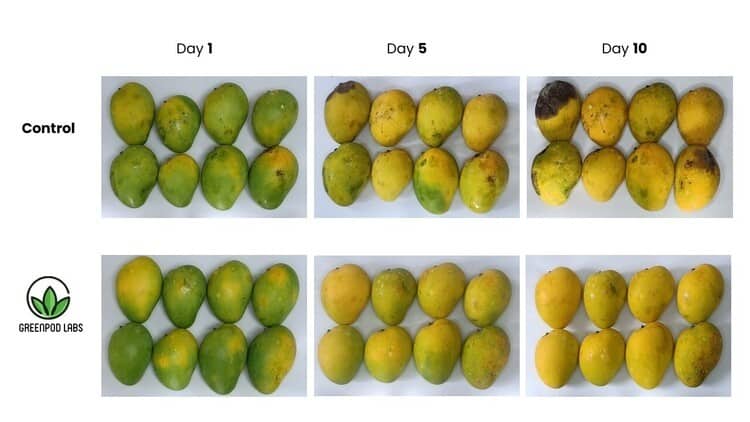Chennai-based start-up Greenpod Labs has invented bioactive sachets that claim to reduce the spoilage of fresh fruits and vegetables.
The bioactive ingredients contained in the sachets could uniform ripening and minimise microbial growth, thereby extending the shelf life of produce, explained Greenpod Labs CEO Deepak Rajmohan.
“The economic loss of food waste costs India USD$12b. Despite India being the second-largest producer of fruits and vegetables, 40% of it is lost before it even reaches the consumer. We have to solve this. If you can solve it for India, you’ll solve it for all developing countries,” he said.

The spoils of science
The sachets are manufactured in two OEM manufacturing plants – one in the state of Tamil Nadu itself, while another is in Andhra Pradesh. The firm’s current sachet output can protect 200 to 500 tonnes of produce per week.
Each 5cm by 5cm sachet is made of non-woven, gas-permeable membranes and contains proprietary formulations of eight to 12 bioactive ingredients in powder form. According to Deepak, the ingredients could be considered “generally recognised as safe” (GRAS) by the US FDA.
Derived from plant parts, such as barks and leaves, skins of vegetables and fruit extracts from India, Asia and Europe, the bioactive ingredients are then encapsulated in different polymers and released as volatile compounds. These compounds activate the in-built defence mechanisms upon landing on the surfaces of the produce.
He claims that one sachet can protect 2kg to 5kg of produce in temperatures ranging from 12 degrees to 45 degrees Celsius (53.6 degrees to 113 degrees Fahrenheit) and increase shelf life by 40% to 60%.
Each sachet type is tailored to the crop and could contain multiple compounds. They must be placed on top of the produce to ensure even distribution of the bioactive ingredients.
The firm’s first commercialised product is the sachet for mangoes. Mangoes tend to overripe or underripe and soften during transport and storage. Deepak also said that rotting occurs on the top layers, rendering it undesirable to distributors and consumers.
“Hence, the compounds for the mango sachet can slow down the softening of the mango skin and subsequently prevent microbes from entering. One mango sachet can protect 2kg of mangoes at ambient temperatures, ranging from 35 to 45 degrees Celsius. It leaves no residue due to the volatility of the compounds,”
Besides impacting the skin thickness, the sachets could trigger other reactions in other crops. For instance, sachets for tomatoes activate the process of ethylene biosynthesis, while sachets for leafy greens could slow down transpiration.
Watering the seeds of growth

Currently, the firm is working on over 20 pathways to prevent spoilage for different types of produce.
Testing is also being conducted in other developing countries; for instance, tests in Indonesia will commence end-June to early July 2022, while Kenya’s will be around July to August 2022. The team is in discussions to explore the Filipino market as well.
The start-up is also targeting to commercialise sachets for another three to four types of crops this year, such as capsicum, leafy greens, grapes and tomatoes. Also in the pipelines are sachets for strawberries and pineapples. B2B firms can also expect more diversification, such as sachets for grains, seeds, meat, milk, juices and confectionary, in the long run.
By year-end, the firm aims to protect 7,000 tonnes of produce, which involves approximately 7m sachets. According to Deepak, 15 sachets costing US$1.20 can protect around 20kg of mangoes. Normally, cold storage for 20kg of mangoes could cost up to US$12.
After India, Greenpod Labs targets Africa and fellow Asian countries like Thailand, Vietnam and Bangladesh and hopes to protect 100,000 tonnes by 2025. By 2027, it aims to protect 10m tonnes of produce in developing countries globally.
“It also provides an economic benefit for consumers. A US$1 investment reaps you an ROI of US$12 to US$14 in sales because of lesser spoilage. You get better prices for the same volume because the quality is better.
“Food waste is a preventable problem. We need to have more systems and processes in place, and we hope that we can play a significant role in making the food waste preventable,” said Deepak.
Greenpod Labs, established in October 2019, were one of the 10 finalists in the sixth edition of the Future Food Asia Awards (FFAA) 2022 held in Singapore recently. This was the firm’s maiden attempt with FFAA.
Before this, the 14-man firm participated in a Danish accelerator and received €100,000 (US$104,000) at the end of 2020. Then, it conducted a second fundraiser involving C-suite investors that garnered €500,000 (US$520,600) in February 2022. Some notable investors include Rockstart Agrifood, the Indian Angel Network and Singapore’s she1K.
Packaging 360 is a comprehensive knowledge sharing ecosystem for the Indian packaging industry. Our services include an online content platform to deliver news, insights and case studies; organising conferences seminars and customised training; Providing Bespoke Project Consulting, Market Research and Intelligence.







